First face-to-face meeting in Solingen
Edited on
05 May 2022Together with the cities of Tallinn and Heraklion the TM#6 was hosted by Solingen and was held from April, 6 to April, 8 in the Theater and Concert Hall in Solingen. After one year of work in
the GG4C project participants from 14 different countries took the chance to meet in person.
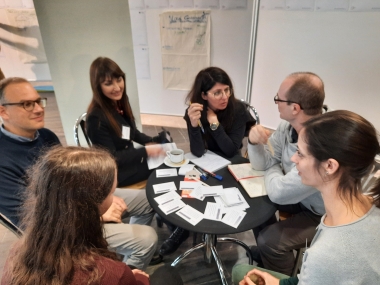
The Theater and Concert Hall was a perfect location with its meeting room and the foyer we could use for workshops, the gallery walk with all our SDG stories and for the catering. A mandatory COVID-19 test every morning made us feel save. Some parts of the meeting were offered in a hybrid form, unfortunately the IT security rules in Solingen made it impossible to record the hybrid parts via Zoom and to use the chat function in Zoom. Sorry for that! 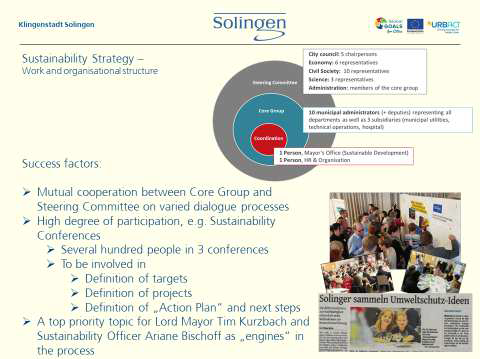
Titeled with „How it all began“ Martin Hückeler, European Affairs Officer and head of the GG4C project in Solingen, presented the process to adopt the sustainability strategy in 2018 and its key success factors, as there were the high level of civil society participation, a wide range of involved stakeholders and the top priority that Lord Mayor Tim Kurzbach has given to the topic.
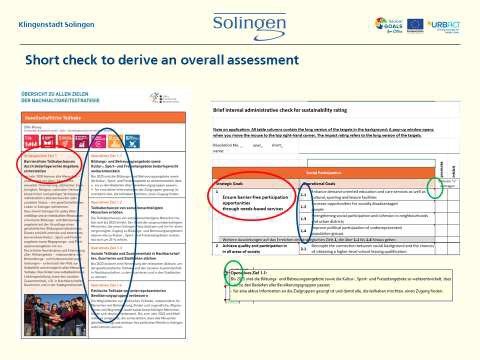
With the next section „What we do today“ the current SDG projects were presented, particularly the tree planting action „People need trees – trees need people“ and the projects related to our approach „Places of Change“. One of the examples for „Places of Change“ was presented by Christian Darmann from the SEG, a special city development agency in Solingen. The „Gläserne Werkstatt“ in the city Center should become a place where urban production, urban products are showcased and where companies, citizens and science can cooperate and create more sustainability in goods and production.
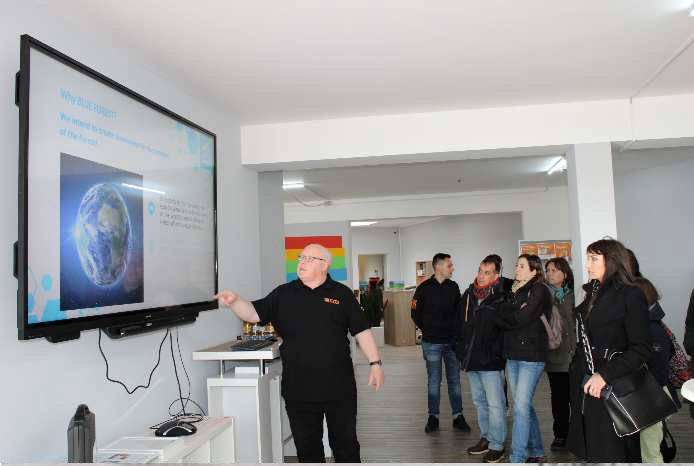
The other example was the project „Blue Forest“ with which the company of Georg Meyer as a private initiative supports reforesting in Solingen. This project was presented by his staff member Chris Möckel.
With the third part of the presentation „What we want to do in the future“, held by Ariane Bischoff, head of the staff unit „Sustainability and Climate Protection“, all participants were asked to show their ideas of laboratory and experimental phases in a workshop. With this approach Solingen wants to get to know project ideas and experiences with which more sustainability on local level can be invented and tested. Such creative approaches often are neglected by responses like „this is not possible“, „no one is interested about that“ or „we can’t pay for it“. But with such common projects we want to show that it can be done – with trial and error to success. Results of the workshop are, among others, ideas for 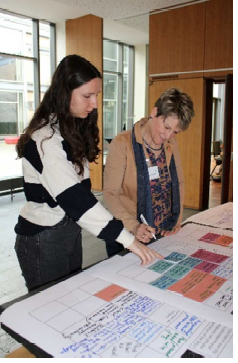
- Neighborhood-related climate councils set up for joint action for climate protection right on the doorstep
- Multi-week experiment with 30 families in each city on the “1.5 degree lifestyle” (experiments with private households)
- Collaboration of schools from the URBACT municipalities who accept the challenge to focus on fair trade for a week, eg by offering only fair products in the kiosk, selling fair T-shirts, organizing a fair chocolate workshop , offering fair flowers for the garden
- Establishment of pocket parks / pocket nature / mini-forests / urban orchards / linear parks as community areas in the city - also as insect- and bee-friendly species-rich areas ("bee corridor").
With a special excursion Martin again presented the also 2018 adopted Sustainability Rating, a mandatory tool to use for resolutions of the city council or its committees and to point out promoting or inhibiting aspects relating the SDGs or the strategy. This to prepare a better basis for political decisions by showing pros and cons of a proposed decision and to mak sure that the SDGs should be taken into account right from the beginning of the resolution process. With a few examples of real resolutions best and bad practices could be showcased and made visible where more quality in using this rating tool is needed.
Beside other presentations from Tallinn, Heraklion and from Lead Expert Stina Heikkilä a very emotional part of the meeting was the participation of a Ukrainian 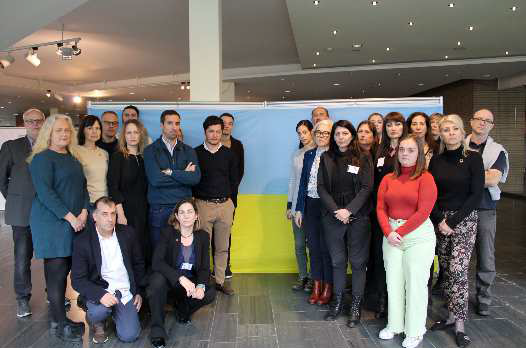 colleague who shared with us the current situation in Kiew during the Zoom meeting „Sensemaking session“. With this agenda item, we wanted to illustrate how important meetings like such as the GG4C meeting are for strengthening democracies on the ground. Particularly we wanted to raise awareness about the Ukrainian crisis and discuss how European cities, networks and initiatives can help. Also the presentation of a new platform „Cities4Cities“ by Laura Kamisli from the city of Sindelfingen matched this topic.
colleague who shared with us the current situation in Kiew during the Zoom meeting „Sensemaking session“. With this agenda item, we wanted to illustrate how important meetings like such as the GG4C meeting are for strengthening democracies on the ground. Particularly we wanted to raise awareness about the Ukrainian crisis and discuss how European cities, networks and initiatives can help. Also the presentation of a new platform „Cities4Cities“ by Laura Kamisli from the city of Sindelfingen matched this topic.
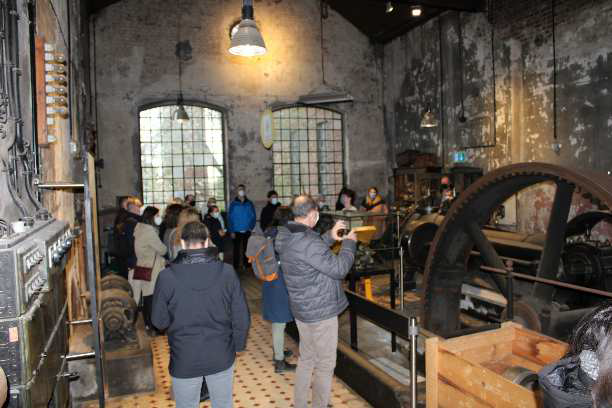 Side events during this meeting were the visit of our Industrial Museum, to see and to hear something about the history of blade and cutlery production as a reason to become the world wide known „Klingenstadt“ (City of Blades) and the visit of the Müngsten Bridge, a great steelarch bridge that is on its way – together with 5 other bridges in Portugal, France and Italy- to become a serial UNESCO world heritage.
Side events during this meeting were the visit of our Industrial Museum, to see and to hear something about the history of blade and cutlery production as a reason to become the world wide known „Klingenstadt“ (City of Blades) and the visit of the Müngsten Bridge, a great steelarch bridge that is on its way – together with 5 other bridges in Portugal, France and Italy- to become a serial UNESCO world heritage.
The bus and shuttle service was operated by our public transport company, the SWS, that showed by the way one of the new battery trolley buses, BOB, one of our key components to offer a 100 % CO2 neutral public transport in Solingen in the near future. 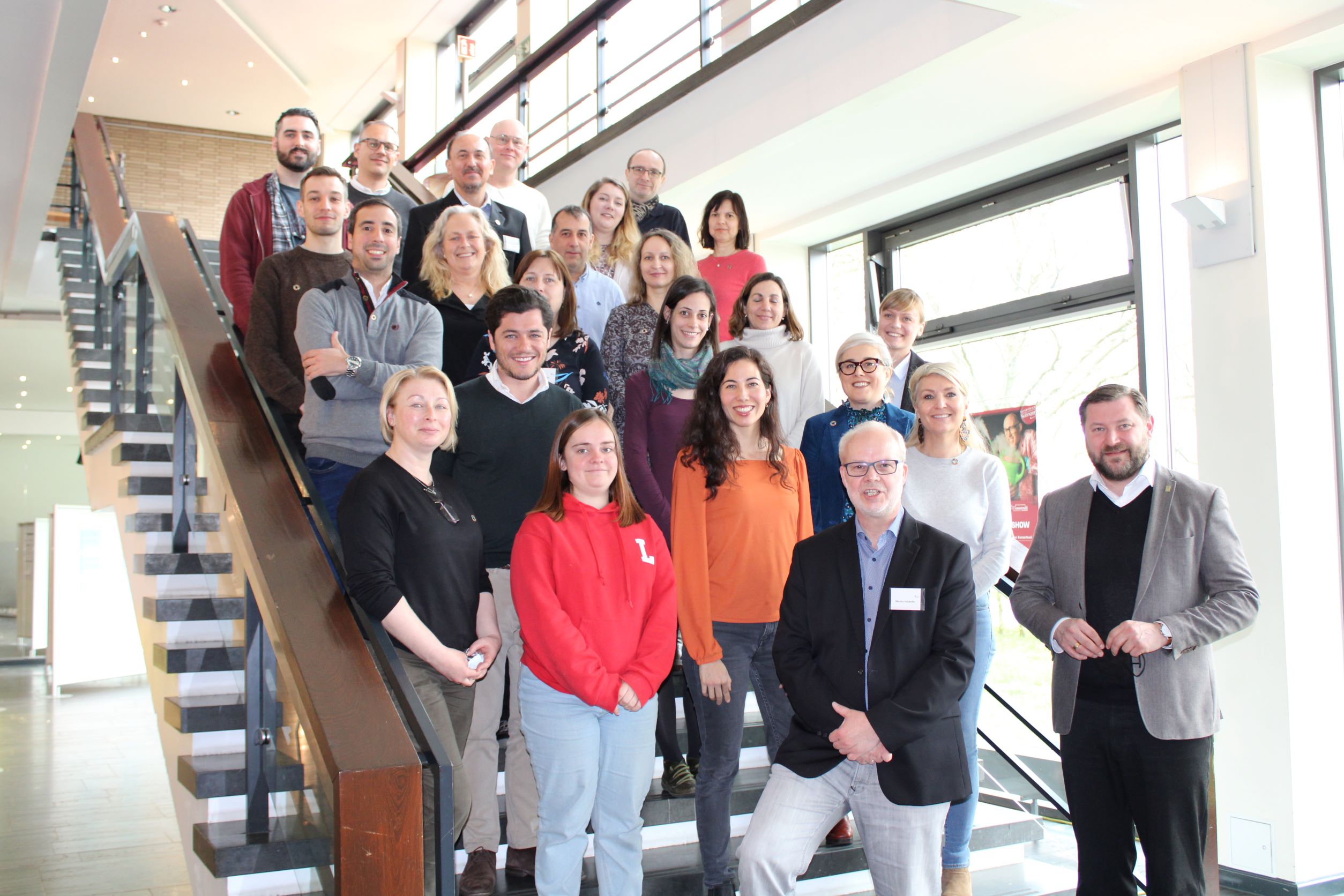
Submitted by Karin Luhaäär on
